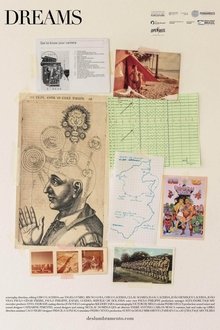Faith, love and civil rights collide on voting day in a small Southern town that hosts a famous performance of the last days of Christ and an infamous gospel drag show.
Related Movies
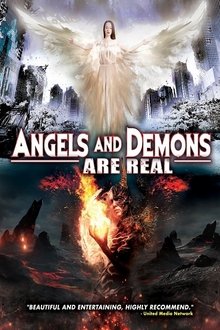
Angels and Demons Are Real (2017)
It seems that in recent years Angel sightings and experiences are everywhere. Perhaps this is because the world is more and more complicated and people are feeling exhausted from keeping up when time is moving too fast and they are endlessly distracted by technology which leaves them spiritually empty. Many people believe that Angels and Demons exist and are active in our world today. With demonic possessions on the rise and a world in chaos, it makes sense to those who have experienced and witnessed encounters with the divine that Angels exist and can help us cope with our everyday lives.

Changing Perceptions: Profile of an Openly Gay Pro Wrestler (2006)
Openly gay pro wrestler, Simon Sermon, defies flamboyant gay stereotypes in professional wrestling and talks about his career in this no-questions-barred documentary. Featuring an interview with the legendary flamboyant pro wrestler, Exotic Adrian Street.
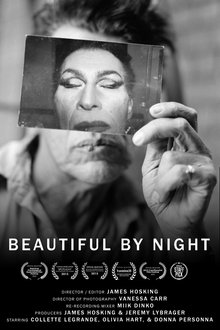
Beautiful by Night (2014)
A documentary following three older drag entertainers at Aunt Charlie's Lounge in the Tenderloin area of San Francisco. The film explores the rituals of these performers' transformations, along with themes of ageing, labor, and self acceptance. Featuring Collette LeGrande, Donna Personna, and Olivia Hart.
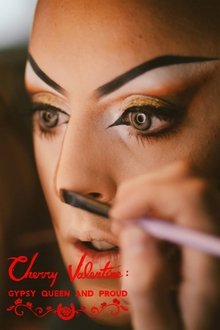
Cherry Valentine: Gypsy Queen and Proud (2022)
At 18, George Ward left the Gypsy community. He had felt rejected having come out as gay. Leaving his Gypsy identity behind, he invented Cherry Valentine, a drag alter-ego. Now he wants to find out if he can be accepted as a queer Gypsy and feel proud.
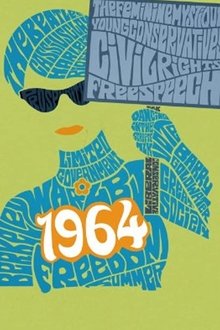
1964 (2014)
1964 was the year the Beatles came to America, Cassius Clay became Muhammad Ali, and three civil rights workers were murdered in Mississippi. It was the year when Berkeley students rose up in protest, African Americans fought back against injustice in Harlem, and Barry Goldwater’s conservative revolution took over the Republican Party. In myriad ways, 1964 was the year when Americans faced choices: between the liberalism of Lyndon Johnson or Barry Goldwater’s grassroots conservatism, between support for the civil rights movement or opposition to it, between an embrace of the emerging counterculture or a defense of traditional values.
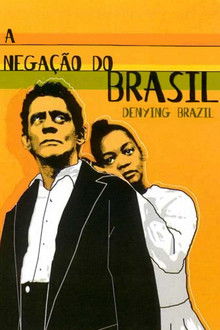
Denying Brazil (2000)
A documentary film about the taboos, stereotypes, and struggles of black actors in Brazilian television "soaps". Based on his own memories and on a sturdy body of research evidence, the director analyses race relations in Brazilian soap operas, calling attention to their likely influence on Brazilian African-Americans' identity-forming processes.

Scrum (2015)
"Scrum might technically refer to restarting a play in order to gain control of the ball, but it’s really about a group of guys packing close together in one place—in this case, gay rugby’s 7th Annual Bingham Cup in Sydney, with 1,000 participants from 15 countries. The documentary zeroes in on three determined gay athletes vying for a spot on the elite Sydney Convicts team: Aki, the Japanese outsider who worked tirelessly for two years so he could travel to Sydney; Brennan, a hunky Canadian jock who was built for contact sports but rejected by his former, straight teammates after they discovered he was gay; and Pearse, the Irish backpacker bullied in school, tired of being continually put down."
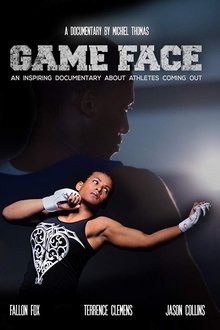
Game Face (2015)
Game Face shows the quest to self-realization of LGBT athletes and the acceptance in society. The film follows athletes during their coming out process, and sheds light on the obstacles LGBT sports players deal with throughout their career.
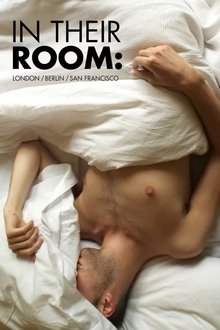
In Their Room: London (2013)
In Their Room (2009-present) is an on-going multi-city documentary series about gay men, bedrooms and intimacy. The series veers into the bedrooms of men where you see them doing everything from the most banal to the sometimes more erotic. Complimenting the revealing nature of their everyday activities are confessional interviews about fantasies, turn-ons and vulnerabilities.
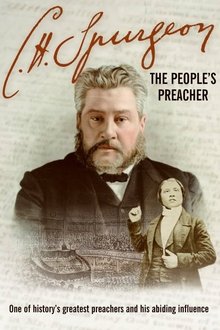
C.H. Spurgeon: The People's Preacher (2010)
Here is the intimate story of one of the greatest preachers in the history of the church. We follow him from his youth where, as a young preacher he is surprisingly called to minister in London and soon captures the love and respect of the nation. He goes on to become one of its most influential figures. This powerful, inspirational docu-dama faithfully recreates the times of C.H. Spurgeon and brings the 'people's preacher' to life as it follows his trials and triumphs with historical accuracy. Made by the award-winning Christian Television Association and filmed on location in England, Scotland, France and Germany, this film vividly captures the spirit and message of a man whose eventful -- and sometimes controversial -- life is highly relevant to the twenty-first century. An international coproduction with CTA Productions in association with Christian History Institute, CWR (UK), ERF Germany.
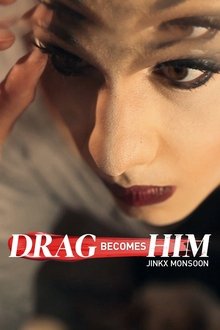
Drag Becomes Him (2015)
An intimate glimpse inside the life of internationally acclaimed drag performer Jinkx Monsoon.
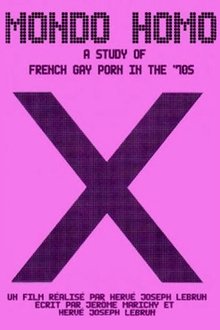
Mondo Homo: Inquiry Into 70's Gay French Porn (2009)
Between 1975 and 1983 a new kind of film could be seen in French cinema: home-grown gay pornography. They were essentially the work of three production companies: Les Films de La Troika (Norbert Terry), AMT Productions (Anne-Marie Tensi) and Les Films du Vertbois (principally Jacques Scandelari). The genre met an untimely end with the advent of video, the last being made in 1983 'Mon Ami, Mon Amour (My Friend, my Lover)'.
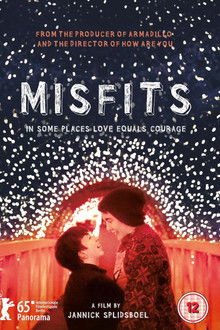
Misfits (2015)
In an Oklahoma town with 2,000 churches, OpenArms is a small shelter for LGBT teenagers. This doc follows three teens who find love and friendship in a world that labels them outcasts.
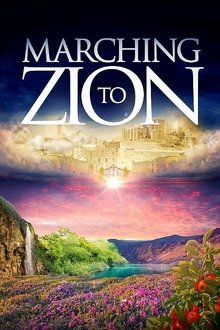
Marching to Zion (2015)
Documentary tracing the history of the Jewish people from the destruction of the temple in AD 70 to the modern-day nation of Israel. Through scriptural and historical evidence, DNA, mathematics, and testimony from rabbis and pastors, it attempts to answer the question, "Who are God's chosen people?".
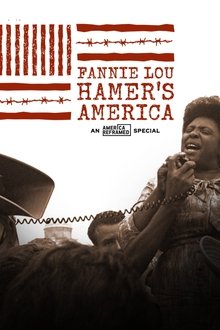
Fannie Lou Hamer’s America (2022)
The film explores and celebrates the lesser-known life of a Mississippi sharecropper-turned-human-rights-activist and one of the Civil Rights Movement’s greatest leaders. Throughout the 1960s, Fannie Lou Hamer established a legacy of civil rights and human rights activism that remains relevant to this day – especially among Black youth.

Transindia (2015)
TRANSINDIA is a moving documentary exploring the Transgender community also known as Hijras, in Ahmedabad, India. Transindia takes you on a journey on their true lifestyles, a discovery of their beliefs and cultures, and an insight in how they struggle to find a place in the Indian society.
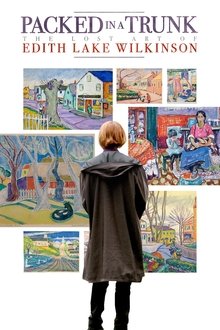
Packed In A Trunk: The Lost Art of Edith Lake Wilkinson (2015)
The story of artist Edith Lake Wilkinson, a painter who was committed to an asylum in 1924 and never heard from again. All her worldly possessions were packed into trunks and shipped to a relative in West Virginia where they sat in an attic for 40 years. Edith's great-niece, Emmy Award winning writer and director Jane Anderson, grew up surrounded by Edith's paintings, thanks to her mother who had gone poking through that dusty attic and rescued Edith's work. The film follows Jane in her decades-long journey to find the answers to the mystery of Edith's buried life, return the work to Provincetown and have Edith's contributions recognized by the larger art world.
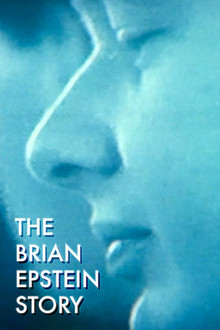
The Brian Epstein Story (1998)
Documentary on the life of Brian Epstein, the man who brought The Beatles to fame. A Documentary examining the turbulent life and career of Beatles manager Brian Epstein. Gay when homosexuality was illegal, a gambler, shopkeeper and failed actor, he was also pop king with a Midas touch who, in the 60s, was as well known as the band he managed. Broadcast in two episodes on the BBC Series Arena
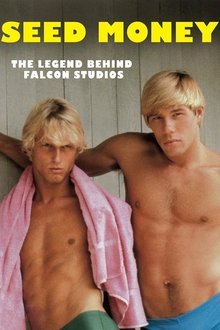
Seed Money: The Chuck Holmes Story (2015)
Seed Money is the story of Chuck Holmes, a San Francisco pornographer turned philanthropist. Holmes helped shaped and create gay identity in the years after Stonewall, and later became a major contributor to gay advocacy groups like the Human Rights Campaign and the LGBT Victory Fund, only to find later in life that while his money was welcome in philanthropic circles, he sometimes wasn't.
